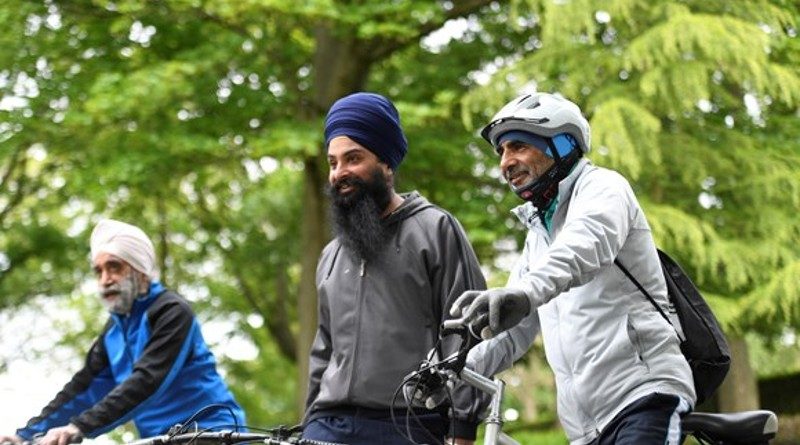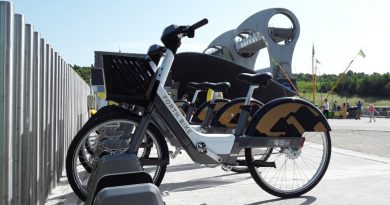TfL releases new data on London cycling communities
Transport for London (TfL) has published new data showing that the people cycling in the capital are much more representative of Londoners in 2020/2021.
The data found that Londoners from Black, Asian and minority ethnic communities were not significantly less likely to have cycled over the past 12 months than white Londoners. 27 per cent as a whole had cycled over the past 12 months, compared to 24 per cent of Black people, 25 per cent of Asian people and 31 per cent of people from mixed backgrounds. This data comes from independent research for TfL based on a representative sample of 3,500 Londoners.
The research found that that protected cycle routes on busy streets, less traffic on minor streets, and more secure cycle parking could help address barriers to cycling faced by people from diverse backgrounds. TfL has worked closely with London’s boroughs to deliver hundreds of kilometres of safer cycle routes, including more than 100km since the start of the pandemic; to build low traffic neighbourhoods right across London, and install thousands of new cycle parking spaces.
The research also found particular concerns from disabled Londoners who want to cycle more, including lack of fitness and a lack of relevant role models. 42 per cent of disabled non-cyclists said they didn’t see anybody like them cycling, while 75 per cent had concerns that they weren’t fit enough. TfL funds community groups and charities through its walking and cycling grants programme to enable more disabled Londoners to cycle and has been using its communications channels to normalise cycling for disabled people.
TfL will use the data and recommendations from the report to ensure that investment continues to be targeted at breaking down barriers to participation.
The Mayor of London, Sadiq Khan, said: “London is one of the most diverse cities in the world and that should be reflected in all areas – including how Londoners get around the capital. Making it easier for Londoners to walk and cycle is an important part of our recovery from the pandemic. It’s really encouraging to see that many more Black, Asian and minority ethnic Londoners are now cycling, and that twenty percent of non-cyclists also looking to take it up. But we are not complacent – the report shows concerns from groups including disabled Londoners that are preventing them from cycling, and we will continue to work with communities to break down these barriers and help ensure everyone feels confident to travel around the city by bike.”
Will Norman, London’s Walking and Cycling Commissioner, said: “We’ve long championed diversity in cycling and it remains a central aim of the Mayor’s transport strategy. It is encouraging to see from this report that change is starting to happen, with almost half of Black non-cyclists open to taking it up. However, we know more work needs to be done to get people from all backgrounds and communities cycling, which is why we have put in place new and upgraded cycle lanes across London, alongside many other measures to make it safer and easier for people to get around by bike. We will continue to engage with communities across the capital and invest in making cycling accessible to all”.
Launching this autumn, the British Cycling City Academies, supported by the Rapha Foundation, is setting up City Academy hubs across the capital, which will each have a coach from the local community, who will lead skills-based sessions and act as role models for other riders.
These activity sessions which will be aimed at young people aged 10-14 years will take place in local open spaces, such as parks and commons, to increase the visibility of cycling. The programme also seeks to support progression into professional cycling, with an ambition to improve diversity in competitive cycling events through City Academy clubs and talent centres.
Danielle Every, British Cycling’s Cycling Delivery Director, said: “Cycling brings huge benefits for individuals, and for the places where we live and work – improved physical and mental health, better air quality, less traffic congestion and fewer CO2 emissions. Yet in London there’s a real divide between those who are able to jump on a bike and enjoy these benefits, and those that can’t. But the good news is that TfL’s research shows that people in London’s diverse communities are keener than ever to get cycling.



